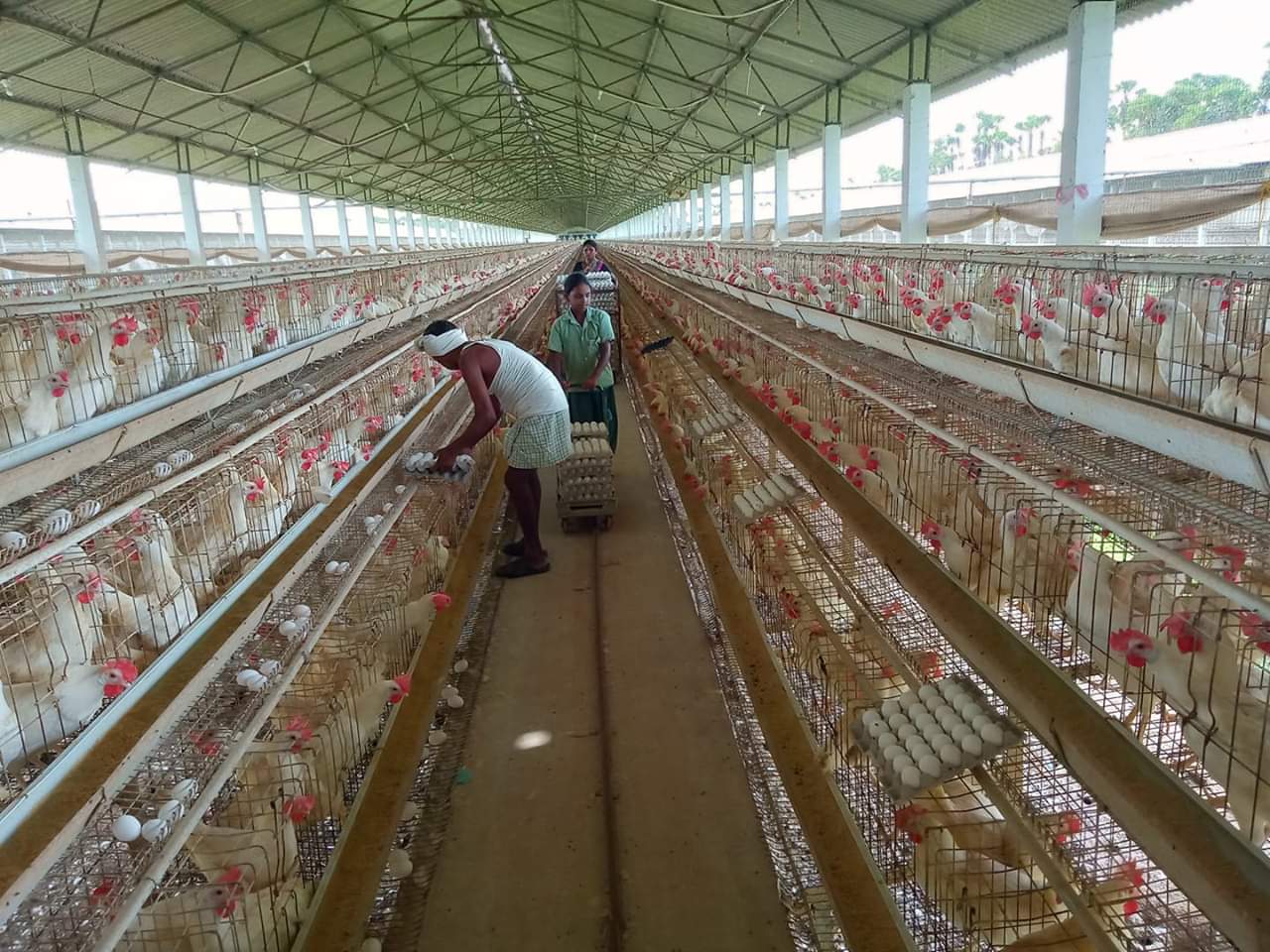Interference of maternal antibodies in RD disease:
Maternal immunity plays significant role in protecting commercial layer chicks against Newcastle Disease at early stage of life. The level of protection depends on the protective antibody titre across the flock which declines fast by the end of first week. However maternal antibody still persists below protective level for another few weeks. Presence of maternal immunity above protective level can neutralise the live vaccine virus during early first week and subsequently making the birds susceptible to NDV infection when the titre moves down to below protective level by the end of second week. Protective efficiency of attenuated vaccines are always questioned in any such interference. This advocates the necessity of vaccinating the birds at right time to protect them against NDV and at the same time minimize the maternal antibody interference. In view of these a study was conducted to quantify the maternal antibody titre against NDV at early stage of commercial layer to determine the right time of vaccination with minimal interference. A suitable cost effective intervention programme against NDV is possible only when the issue of maternal antibodies come.
Maternal immunity for Newcastle Disease (ND) can be quantified with Haemagglutination Inhibition(HI) test. Titres are expressed as log 2 values. Titres in a group are analysed statistically and mean titre in a group depicts status of flock immunity. Quantification of HI titre at day old age and subsequent quantification at weekly interval can determine the maternal antibody interference in normal vaccination. Vaccination schedule can, therefore, be modified accordingly to address the issue of maternal antibody.
Six hundred numbers of day old commercial chicks were procured and housed in aseptic environments separately in groups of 200 numbers each. The chicks were identified as group A,B and C. Serum antibody titre for ND was determined on 1st day of life for all the chicks to check whether it was protective (25)or not. Group A chicks received commercially available lentogenic strain vaccine on 1st day of life. Group B chicks were vaccinated with the same vaccine on 7th day of life. Group C chicks received no vaccine and kept as negative control. All the chicks were reared up to 20th day of life on same diet with similar aseptic environment. Serum antibody titres were determined on 7th, 10th, 15th day of life for all the groups. The parameters were analysed statistically. HI titres were expressed in log 2 values for determination of mean and standard error.
The serum antibody titre recorded at the first day of life showed protective immunity level of above 1.50515±.001 (more than 25) for all the groups. This finding signifies the presence of maternal immune response at a protective level after hatching.
The antibody titre on 7th day old chicks showed below protective titre for group A and marginally protective titre for group B, however unvaccinated group C still leading the table with higher titre.
The antibody titre detected on 10th day showed significant reduction of titre in group A and in unvaccinated group C, The titre for the group B found to be well above the protection level.
The titre of 15th day showed marked intervention of maternal antibody in vaccinated group A. The reduction in unvaccinated control group C was obvious. The static level of titre in group B from the previous titre on 10th day marked the need for booster vaccination.
Summery and Conclusion:
From the results obtained, it was observed that very early vaccination against NDV results in the neutralization of the live vaccine virus in the system which was clearly reflected in their antibody titres. The already existing circulatory maternal antibodies bind with the live antigens forming antigen antibody interactions resulting the titre to drop below protective level.
Recommendation: In highly endemic areas where vaccination can’t be delayed owing to maternal antibody interference, a very early dose of live attenuated virus or inactivated antigen can be administered to negate the existing maternal antibodies. It should be kept in mind that this will neither protect nor increase the titre level but will only pave the way for a highly successful live vaccination at early second week once maternal antibodies are neutralised. By Dr.R.S.Rao, poultry consultant.


